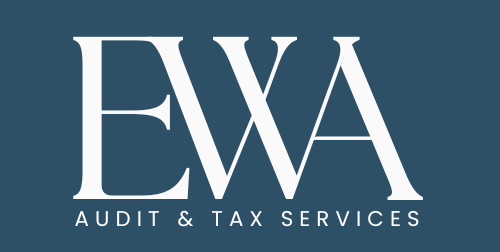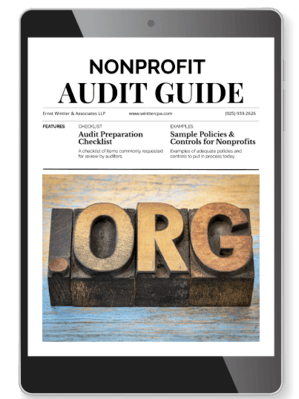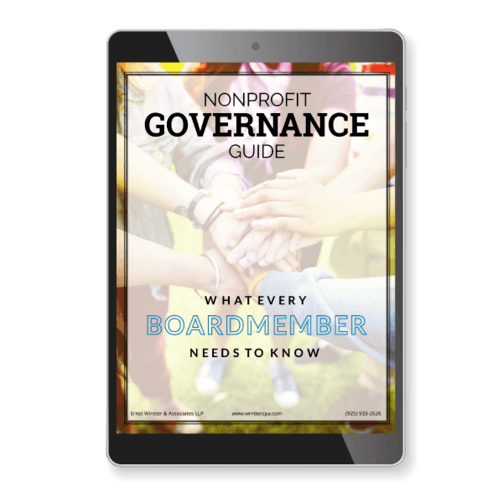Most of us worry about being subjected to an audit from time to time—after all, the IRS is known for taking a closer look at personal taxes. For nonprofits, however, the reasons for an audit can be far more complex. Fortunately, our experienced CPA firm can help you navigate both federal and state regulations through our specialized nonprofit audit services. To help your organization and governance team understand when you might be automatically subjected to an audit, and when one could arise for other reasons, here are four common events that may trigger an audit.
Your state requires it
For California nonprofits that receive 2 million or more of revenue, an independent audit is required every year; as well as a report to the Attorney General. A wide variety of California charities are required to register, especially if they use professional fundraisers in California. Laws in other states vary, so here’s a listing of state requirements.
Your Nonprofit spends $750,000 or more in federal money
Believe it or not, it’s easy to run afoul of this particular rule. That’s because the rule applies even if you don’t get the money directly from the federal government: it could be funneled through a state agency, for instance. Just as importantly, federal money that triggers an audit may also include loans and loan guarantees, and there are other particulars as well. Federal-funds reviews are called single audits, and the intent is to ensure that federal money is being spent for the stated purpose. An experienced nonprofit auditor will know how to do this type of review.
Funding Sources Require Them
While smaller donors are generally only interested in the form 990, people looking to make major donations to a large charity will frequently want to look at the audit report. This is especially true with foundations and larger charitable trusts. However, applying for a grant doesn’t always require a full-scale nonprofit audit financial review. A financial review may be sufficient, especially if your organization is smaller or isn’t asking for much money. Although a financial review is a less-thorough financial statement than an audit, it helps provide limited assurances that your organization practices sound financial principles.
The IRS Has Questions – Subjected to an Audit
Unfortunately, being a nonprofit organization doesn’t protect against IRS questions. Although money received from funding sources isn’t subject to tax, there are other types of taxation issues where the IRS can come calling. For instance, if your NPO has employees, you’ll have to pay payroll tax and withhold income tax like a for-profit employer. NPO’s also have to pay tax on income which isn’t related to their charitable purposes. In this case, having nonprofit audit services available to your company is critical: you never know when the IRS is going to try and get more out of you and your employees. A great list of IRS pitfalls is found here.
No matter why your organization needs an audit, at Ernst Wintter & Associates LLP we make it easier to prepare with our nonprofit audit checklist. When you call us, we’ll get to know your organization and help answer any questions you may have before an audit is performed.








